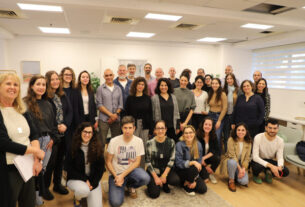After holding a hearing on Thursday morning with officials at Assuta’s private hospital in Tel Aviv’s Ramat Hahayal, the Health Ministry ordered that its in-vitro fertilization unit must reduce its activity and that the hospital should appoint a senior expert from outside the medical center to supervise what is carried out, assist in updating procedures and implementing them and instill a culture of safety and reporting and management of unusual events at the hospital.
Dr. Hagar Mizrahi, head of the ministry’s medical division who conducted the hearings as well as the in-depth investigation of mix-ups in handing embryos, examined the set of data including administrative deficiencies in the field of treatment safety. She said the unit’s failures were due to a poor organizational culture and high workloads in the IVF unit.
Reducing the activity in the unit includes a ban until further notice of performing more than 25 operations (egg extractions and embryo retrievals) in a working day; after the limit is reached, the reception of new patients in the unit must be stopped immediately.
Additionally, the unit’s work, including in its lab, must close its doors by 11 pm.
A proposal for the appointment of an external supporter will have to be submitted and an orderly plan for its activities must be sent to the ministry for review and approval. Failure to submit an offer and may lead to more serious measures being taken, Mizrahi warned.
In recent years, there has been a sharp increase in the number of IVF treatments in privately owned medical institutions, raising the need to increase and ensure the mechanisms required to maintain the quality and safety of treatment in this system, and in particular in the issues of ensuring working conditions, personnel status and appropriate infrastructures. IVF treatments, most of them paid for by the four health funds, have supplied private hospitals with considerable income.
The hospital mistakenly used the wrong sperm and ova multiple times
A few months ago, a child conceived at the IVF unit at Ramat Hahayal, was found not to have a genetic link to his father, raising concerns that the hospital mixed up sperm samples during the IVF process.
Assuta stated that it had been contacted by a couple who performed IVF in 2018 and recently conducted a genetic test at a facility outside of Israel. The test showed that apparently, there was no genetic connection between the baby and the father, meaning that the sperm sample may have gotten mixed with a different sperm sample.
The latest suspected case of a mix-up during the IVF process came about a year after a woman who underwent the process at another Assuta private IVF unit – in Rishon Lezion – was found to carry and deliver a baby who was not her biological child. The woman, who underwent risky surgery to save the baby, who also had surgical intervention afterwards, is now raising the girl with her husband at home.
The ministry then investigated the scandal and found that “economic considerations were preferred over basic principles of maintaining the quality and safety of treatment.”
The ministry also charged that “this preference turned the medical institution into an assembly line, derailed the cart and caused suffering and pain, not only to the patients who are in the first circle of the event, but to the community of patients and caregivers in Assuta and in all the IVF units in Israel.”




